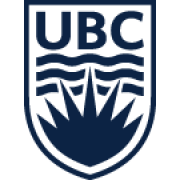- A PhD degree in ecology, environmental and/or social sciences, or related field.
- Strong qualitative and quantitative skills including socio-ecological research design, data analysis, statistical analysis and data management.
- An interest in interdisciplinary research spanning the fields of ecology, social sciences, environmental policy, and environmental governance.
- The ability to contribute to co-supervision of master's students based at partner institutions in Ghana and Tanzania, and to provide mentorship to other early career researchers on the project team.
- Experience in writing and publishing peer-reviewed articles.
- Fluency in verbal and written English accompanied by excellent oral and written communication skills.
- Ability to work independently and coordinate multi-partner collaborative research projects and be comfortable with the concomitant travel this will entail.
- Interest in working in an interdisciplinary, multicultural, and collaborative environment as a part of a diverse team.
- Experience in conducting collaborative science as part of a multi-disciplinary team.
- Proven record of project coordination.
- Track record of undertaking fieldwork in close concert with partner institutions and early-career professionals.
- Knowledge of Multi-Criteria Decision Support Systems (DSS) would be welcome, but not essential.
- Experience conducting socio-ecological data synthesis.
- Experience of environmental policy engagement and international policy processes would be advantageous.
-

Postdoctoral Research Fellow
4 weeks ago
The University of British Columbia Vancouver, Canada Full timeAcademic Job Category · Faculty Non Bargaining Job Title · Postdoctoral Research Fellow Department · Brotto Laboratory | Department of Obstetrics and Gynaecology | Faculty of Medicine (Lori Brotto) Posting End Date · June 17, 2024 Note: Applications will be ac ...
-

Postdoctoral Research Fellow
2 weeks ago
The University of British Columbia Vancouver, Canada Part timeAcademic Job Category · Faculty Non Bargaining Job Title · Postdoctoral Research Fellow Department · Coelho Laboratory | Department of Psychiatry | Faculty of Medicine (Jennifer S Coelho) Posting End Date · June 21, 2024 Note: Applications will be accepted un ...
-

Postdoctoral Research Fellow
6 days ago
BC Cancer Research Centre Vancouver, CanadaSorensen Laboratory | Department of Pathology and Laboratory Medicine | Faculty of Medicine (Poul Sorensen) · The Sorensen laboratory is seeking a highly-motivated postdoctoral fellow with leadership ability and a strong background in one or more of the following fields, namely m ...
-

Postdoctoral Research and Teaching Fellow
2 days ago
The University of British Columbia Vancouver, Canada Full timeJob Category · Faculty Non BargainingJob Title · Postdoctoral Research and Teaching FellowDepartment · Potvin,Gabriel | Department of Chemical and Biological Engineering | Faculty of Applied SciencePosting End Date · April 30, 2024Note: Applications will be accepted until 11:59 P ...
-

Post-doctoral Research Fellow in Seaweeds
3 weeks ago
The University of British Columbia Vancouver, Canada Full timeAcademic Job Category · Faculty Non Bargaining Job Title · Post-doctoral Research Fellow in Seaweeds (Martone Lab) Department · Research | Martone Lab | Department of Botany | Faculty of Science (Patrick Martone (On Leave)) Posting End Date · June 26, 2024 No ...
-

Post-doctoral Research Fellow in Seaweeds
3 weeks ago
The University of British Columbia Vancouver, Canada Full timeAcademicJob Category · Faculty Non BargainingJob Profile · Postdoctoral Research FellowJob Title · Post-doctoral Research Fellow in Seaweeds (Martone Lab)Department · Research | Martone Lab | Department of Botany | Faculty of ScienceCompensation Range · $1.00 - $500,000.00 CAD Mo ...
-

Post-Doctoral Research Fellow
2 weeks ago
Pollution Lab Vancouver, CanadaWe are actively looking for a highly motivated individual that is dedicated to understanding how the environment that we live in impacts our health. We are focused on understanding how the air we breathe impacts immune responses and modulates gene expression in, and function of, ...
-
Postdoctoral Research Fellow
3 weeks ago
University of British Columbia Vancouver, CanadaAcademic · Job Category · Faculty Non Bargaining · Job Title · Postdoctoral Research Fellow · Department · Research | Lynd Lab | Faculty of Pharmaceutical Sciences (Larry Lynd (On Leave)) · Posting End Date · January 31, 2023 · Note: Applications will be accepted until 11:59 PM o ...
-
Postdoctoral Research Fellow
3 weeks ago
University of British Columbia Vancouver, CanadaAcademic · Job Category · Faculty Non Bargaining · Job Profile · Postdoctoral Research Fellow · Job Title · Postdoctoral Research Fellow · Department · Research | Im | Department of Psychology · Compensation Range · $1.00 - $500,000.00 CAD Monthly · Posting End Date · August 31, ...
-

Postdoctoral Research Fellow
4 weeks ago
UBC Vancouver, Canada Full timeAcademicJob Category · Faculty Non BargainingJob Title · Postdoctoral Research FellowDepartment · Brotto Laboratory | Department of Obstetrics and Gynaecology | Faculty of Medicine (Lori Brotto)Posting End Date · June 17, 2024Note: Applications will be accepted until 11:59 PM on ...
-
Postdoctoral Research Fellow
3 weeks ago
University of British Columbia Vancouver, CanadaAcademic · Job Category · Faculty Non Bargaining · Job Title · Postdoctoral Research Fellow - Data Science · Department · Stringhini Laboratory | School of Population and Public Health | Faculty of Medicine (Silvia Stringhini) · Posting End Date · March 4, 2024 · Note: Applicatio ...
-

Postdoctoral Research Fellow
2 weeks ago
UBC Vancouver, CanadaAcademic · Job Category · Faculty Non Bargaining · Job Title · Postdoctoral Research Fellow · Department · Research | O'Connor | Department of Zoology | Faculty of Science (Mary O'Connor) · Posting End Date · May 9, 2024 · **Note**: Applications will be accepted until 11:59 PM on ...
-
Postdoctoral Research Fellow
2 weeks ago
University of British Columbia Vancouver, CanadaAcademic · Job Category · Faculty Non Bargaining · Job Title · Postdoctoral Research Fellow · Department · Research | O'Connor | Department of Zoology | Faculty of Science (Mary O'Connor) · Posting End Date · May 9, 2024 · Note: Applications will be accepted until 11:59 PM on the ...
-
Postdoctoral Research Fellow
4 weeks ago
University of British Columbia Vancouver, CanadaAcademic · Job Category · Faculty Non Bargaining · Job Title · Postdoctoral Research Fellow · Department · McKeown Laboratory Pacific Parkinson's Research Centre Division of Neurology | Department of Medicine | Faculty of Medicine (Martin McKeown) · Posting End Date · August 18, ...
-
Postdoctoral Research Fellow
2 weeks ago
University of British Columbia Vancouver, CanadaAcademic · Job Category · Faculty Non Bargaining · Job Title · Postdoctoral Research Fellow · Department · Research | Im | Department of Psychology (Hee Yeon Im) · Posting End Date · September 1, 2023 · Note: Applications will be accepted until 11:59 PM on the day prior to the Po ...
-

Postdoctoral Research Fellow
1 month ago
UBC Vancouver, Canada Full timeAcademicJob Category · Faculty Non BargainingJob Title · Postdoctoral Research Fellow - Cancer Biology & ProteomicsDepartment · Lange Laboratory | Department of Pathology and Laboratory Medicine | Faculty of Medicine (Philipp Lange)Posting End Date · June 17, 2024Note: Applicatio ...
-
Postdoctoral Research Fellow
3 weeks ago
University of British Columbia Vancouver, CanadaAcademic · Job Category · Faculty Non Bargaining · Job Title · Postdoctoral Research Fellow - Bioinformatics · Department · Pavlidis Laboratory | Department of Psychiatry | Faculty of Medicine (Paul Pavlidis) · Posting End Date · March 5, 2024 · Note: Applications will be accepte ...
-
Postdoctoral Research Fellow
3 weeks ago
University of British Columbia Vancouver, CanadaAcademic · Job Category · Faculty Non Bargaining · Job Title · Postdoctoral Research Fellow · Department · Foster Laboratory | Department of Biochemistry and Molecular Biology | Faculty of Medicine (Leonard Foster) · Posting End Date · Note: Applications will be accepted until 11 ...
-

Postdoctoral Research Fellow
22 hours ago
UBC Vancouver, CanadaAcademic · Job Category · Faculty Non Bargaining · Job Title · Postdoctoral Research Fellow · Department · Norman Laboratory CART | Department of Family Practice | Faculty of Medicine (Wendy Norman) · Posting End Date · July 1, 2024 · **Note**: Applications will be accepted until ...
-

Postdoctoral Research Fellow
1 month ago
UBC Vancouver, Canada Full timeAcademicJob Category · Faculty Non BargainingJob Title · Postdoctoral Research Fellow - Coastal MangroveDepartment · Research | Sunderland Lab | Department of Forest and Conservation Sciences | Faculty of Forestry (Terence Sunderland)Posting End Date · June 1, 2024Note: Applicati ...
Postdoctoral Research Fellow - Vancouver, Canada - The University of British Columbia

Description
AcademicJob Category
Faculty Non BargainingJob Title
Postdoctoral Research Fellow - Coastal MangroveDepartment
Research | Sunderland Lab | Department of Forest and Conservation Sciences | Faculty of Forestry (Terence Sunderland)Posting End Date
May 31, 2024Note: Applications will be accepted until 11:59 PM on the day prior to the Posting End Date above.
Job End Date
May 30, 2026Annual salary : $55,000-70,000 including benefits.
Co-developing Decision Support System for Coastal Mangrove-based Socio-ecological
Systems in Eastern and Western Africa (CoastMan)
Posting End Date
May 31st, 2024
Note: Applications will be accepted until 11:59 PM on the day prior to the Posting End Date above.
Annual salary : $55,000-70,000 including benefits.
Job description
Coastal Mangroves in Eastern and Western Africa offer coastal communities much-needed ecosystem services and protection against key climate change risks, including risks to low-lying coastal-ecological systems, risks to terrestrial and ocean ecosystems, and as a result, risks to food security. Coastal communities are particularly vulnerable to climate change impacts because of (1) their location being highly exposed to sea level rise and erosion, (2) poor socio-economic conditions, and (3) their high dependence on mangrove ecosystems. Coastal Mangroves however are highly threatened both by anthropogenic and climate change pressures. The main objective of the project (CoastMan) is co-production and uptake of a Multi-Criteria Decision Support System (DSS) that provides vulnerable communities and decision-makers a knowledge-based decision-making capacity for the restoration and conservation of socio-ecological systems. An interdisciplinary and trans sectoral team is established from researchers and stakeholders from across three continents (North America, Europe, and Africa), in partnership with vulnerable groups to co-develop and uptake a DSS to promote mitigation and strategies that enhance the adaptive capacities of the mangrove socio-ecological systems in Eastern and Western Africa.
Drawing on quantitative and qualitative data from extensive field research in coastal Tanzania and Ghana, extensive literature, and remote sensing, the project will 1) co-develop dynamic maps of drivers and risks of mangrove habitat loss, 2) support locally-led social-ecological and climate resilience through coordinated management of mangrove resources, 3) co-develop sustainable livelihood strategies for coastal communities, 4) co-design a novel multicriteria framework for mangrove restoration and conservation, and 5) co-develop a novel DSS for mangrove socio-ecological systems.
We have devised a co-production and dissemination strategy so that project outputs will assist in identifying mitigation strategies and enhancing adaptive capacities of the frontline coastal communities, including building their capacity needs in designing climate actions such as restoration and conservation of mangrove ecosystems. Furthermore, the project will lead to improved knowledge and capacity of partner institutions through supporting early career researchers and promoting strengthened collaboration between partners and vulnerable coastal mangrove-dependent communities.
There will be two post-doctoral researchers based at UBC for the duration of the project, one in the Institute of Oceans and Fisheries and the other in the Faculty of Forestry. This job advertisement is for the latter position. Together, the post-docs will contribute to the research outputs and coordination of the project in close coordination with the project PI and international partners.
Minimum Qualifications
Preferred skills
Offer
You will be offered a full-time two-year position with the potential to extend to a third year. The annual salary will be commensurate with the annual value of a SSHRC Postdoctoral Scholarship, adjusted for inflation annually. UBC offers postdocs a wide-ranging benefits plan that includes extended health and dental coverage. Postdocs are encouraged to apply for external funding to support their independent research building on this position within the research group.
About the Organization
This position will be based at the Department of Forest and Conservation Sciences, Faculty of Forestry, the University of British Columbia, Vancouver campus, which is located on the territory of the Musqueam (xwməθkwəy̓əm) People. The University of British Columbia is a global centre for teaching, learning and research, consistently ranked among the top 20 public universities in the world. The University of British Columbia's (UBC) Faculty of Forestry is recognized globally as one of the leading forestry faculties in the world. As the largest Faculty of Forestry in Canada, we welcome almost 1,500 undergraduate and graduate students from over 40 countries every year to study forestry at UBC.
We strive to create a respectful, positive, and safe working environment for people of all backgrounds. We believe that inclusiveness and diversity are essential to academic excellence. We encourage members of underrepresented groups to apply including First Nations, Métis and Inuit peoples, Indigenous peoples of North America, Black-identified persons, other racialized persons, persons with disabilities, and those who identify as women and/or 2SLGBTQ+. In addition, in keeping with our EDI principles of co-production with vulnerable communities and capacity building for uptake, CoastMan will train and develop research the capacity for postdocs and co-develop knowledge with under-represented groups such as local mangrove-adjacent communities. This approach not only aligns with our goals but also actively encourages qualified candidates from Ghana and Tanzania, as well as elsewhere in Africa to apply.
Additional Information
For further information about this position, please contact Prof. Terry Sunderland ()
The application deadline is 31st May 2024 or until the position is filled
Benefits
Plan Group Number: 020605Member ID: your 7-digit UBC employee ID number, Need crisis counselling?, Call the TELUS Health at to chat with a counsellor., Disclaimer, The benefits information on this website is provided as a descriptive summary only. While the University has endeavored to accurately reflect its benefit programs, policies and plans, the information on this website does not create any contractual or other rights between the University and its faculty and staff members. To the extent that there are any conflicts or discrepancies between the benefits information on this website and the benefit plan documents (including group insurance contracts and benefit booklets) or any applicable collective agreement, employment agreement, or UBC policy, the benefit plan documents and collective agreement, employment agreement, or UBC policy will govern in all cases.